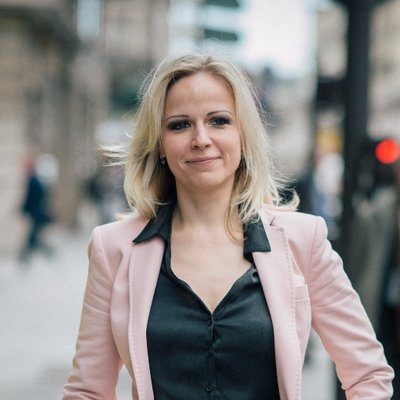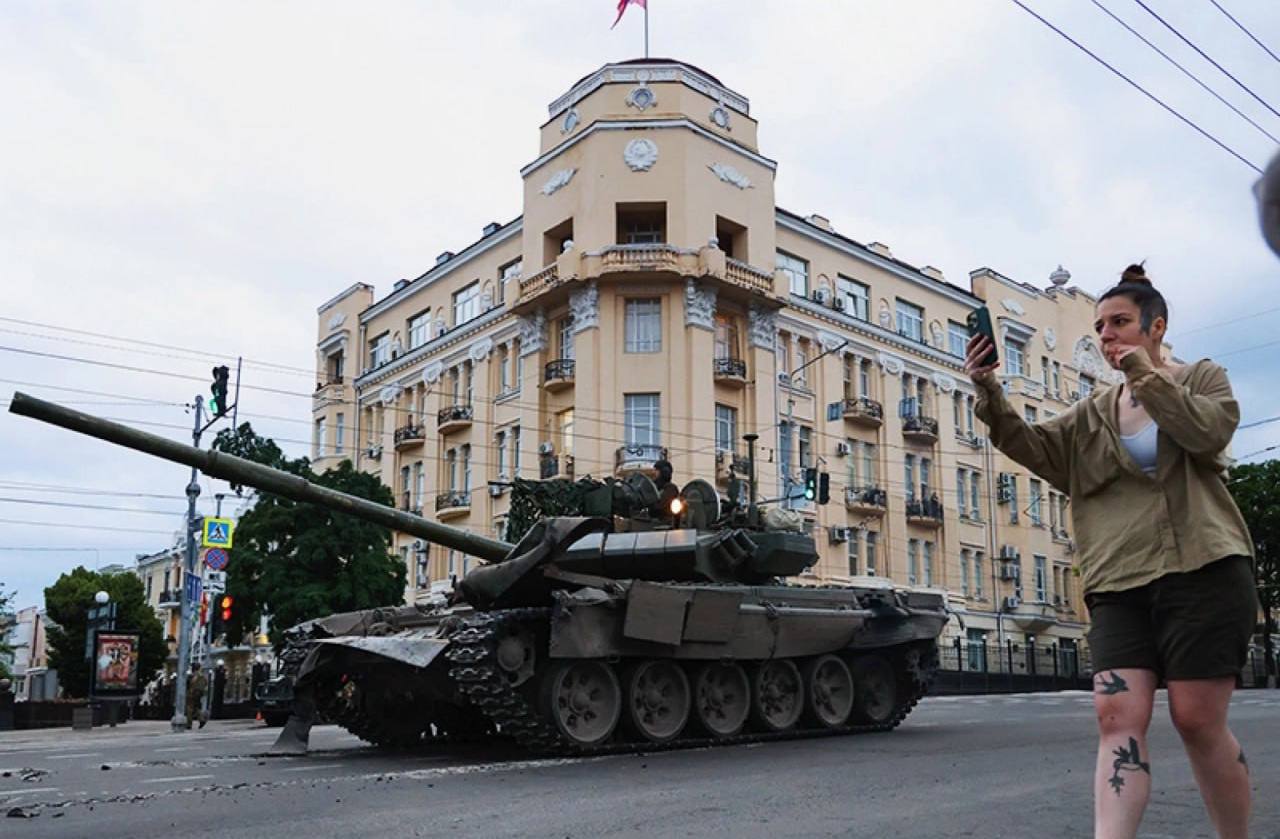
Credit: Tatiana Stanovaya via Twitter.
Below is a brief description of Prigozhin’s mutiny and an attempt to understand what caused Evgeny Prigozhin to back down after Wagner’s mercenaries covered nearly 800 kilometers without encountering stiff resistance on their way to Moscow. Most observers initially missed important details due to information scarcity and lack of time for in-depth analysis. Here is the perspective that currently seems most plausible from Tatiana Stanovaya’s point of view based on her Twitter thread.
Prigozhin’s motivation and objectives
First, Prigozhin’s rebellion was not a bid for power or an attempt to overtake the Kremlin. It arose from a sense of desperation. Prigozhin was forced out of Ukraine and found himself unable to sustain Wagner the way he did before, while the state machinery was turning against him. To top it off, Putin was ignoring him and publicly supporting his most dangerous adversaries.
Prigozhin views Wagner coup as existential survival effort – ISW
Prigozhin’s objective was to draw Putin’s attention and to impose a discussion about conditions to preserve his activities – a defined role, security, and funding. These were not demands for a governmental overthrow. Prigozhin’s mutiny was a desperate bid to save his enterprise.
Wagner’s head hoped that his merits in taking Bakhmut (that is why he needed it!) would be taken into account and the concerns would catch Putin’s serious attention. Now it appears that these merits helped Prigozhin to get out of this crisis alive, but without a political future in Russia (at least while Putin is in power).
Putin’s reaction and Prigozhin’s dead end
Prigozhin was caught off-guard by Putin’s reaction and found himself unprepared to assume the role of a revolutionary. He also was not prepared for the fact that Wagner was about to reach Moscow, where his only option remained to “take the Kremlin.” The battle of Moscow would inevitably result in Prigozhin and his fighters being eradicated.
Those in the Russian elites who could reach out to Prigozhin most likely offered him to surrender. Apparently, this added to his sense of impending doom. However, I do not believe any high-level negotiations took place. Lukashenko presented Prigozhin with a Putin-endorsed offer to retreat on the condition that Prigozhin would leave Russia and Wagner would be dissolved.
Prigozhin stops Wagner forces 200 km away from Moscow, says they return to field camps
I do not think Prigozhin was in a position to make demands (such as the resignation of Russia’s Defense Minister, Sergei Shoigu, or the Chief of the General Staff of the Russian Armed Forces, Valery Gerasimov – something many observers expect today. If that happens, it will be due to another reason.) After Putin’s address on the morning of 24 June, Prigozhin’s primary concern was to find an off-ramp.
The situation would have led to inevitable death in merely a few hours. Putin may have promised him safety on the condition that Prigozhin would move to Belarus and stay quiet.
Wagner founder to leave for Belarus as Russia promises to drop criminal charges
Consequences for Putin’s regime
I stand by my previous assertion that Putin and the state have been dealt a severe blow (which will have significant repercussions for the regime). However, I want to emphasize that image has always been a secondary concern for Putin.
Setting optics aside, Putin objectively resolved the Wagner and Prigozhin problem by dissolving the former and expelling the latter. The situation would have been far worse if it had culminated in a bloody mess on the outskirts of Moscow. And no, Putin does not need Wagner or Prigozhin. He can manage with his own forces. He is now certainly convinced of that.
Related:
- Wagner chief Prigozhin planned mutiny in Russia since mid-June – Washington Post
- Zelenskyy and Biden discuss defense cooperation and mutiny in Russia
- Frontline report: Russia suffers record aircraft losses during Wagner mutiny
- Wagner’s mutiny exposes serious cracks in Putin’s regime, Blinken says




